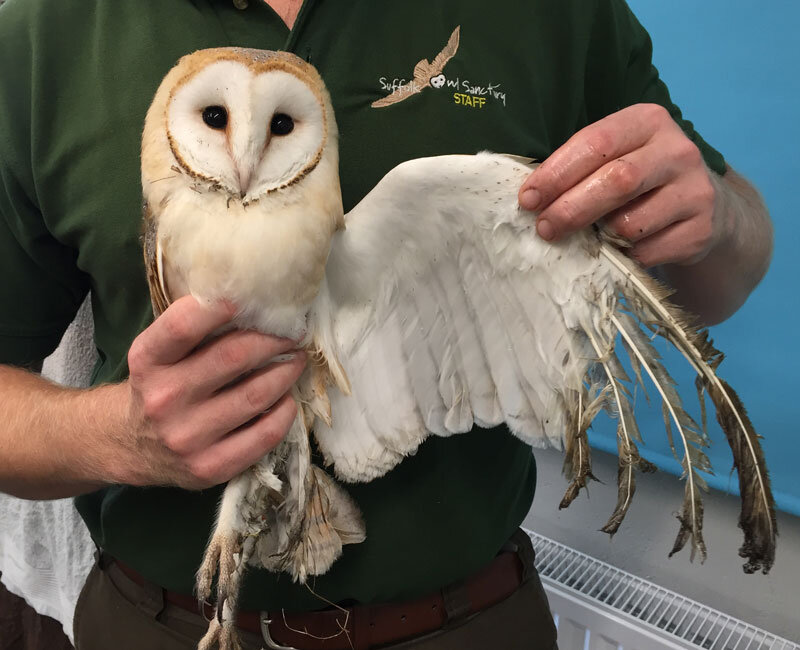We recently took charge of a young barn owl that had been found caught in a glue trap. Glue traps a huge risk to wildlife, especially bird of prey who will go down to the rodents that are caught in the traps. If the traps are not checked regularly raptors unfortunate to fall foul of them in this way can suffer a slow, unnecessary death.
Luckily this barn owl was found in time and brought in to us. Her left leg and wing where stuck solid to each other and the wing feathers were badly damaged by the substance.
Initially we had to get the wing unstuck from the leg so the areas were dribbled with olive oil, which can release the glue, then gently washed in a solution of washing liquid. Over the period of a week we were gradually able to remove the vast majority of the glue, enough that she could move freely. However the process sadly removed the oils from her feathers so they became quite weak and lost their waterproofing.
This graphic image gives you a close-up impression of the effect landing in a glue trap can cause to delicate plumage.
This barn owl had a very lucky escape but even so, as a consequence of the weakened state of her plumage, it’s possible she faces a long rehabilitation with us until her feathers are moulted and repaired enough for release. The process of moulting a full set of feathers takes up to 3 months, during which feathers are shed and re-grown over the entire body in a regular pattern. In order to minimise the impact of the molt on the owl's flight and hunting skills, this molting pattern only allows a few of the primary or secondary flight feathers to be shed at time.
With glue traps there are strict recommendations for their use (for example, checking them regularly) and using them undercover where birds are less likely to stray. Unfortunately barn owls will be using many areas like barns for housing, so are often found around where these traps are commonly used. Also traps like this It’s also recommended that glue straps to be used as a last resort.
In terms of advice, should you be unfortunate to encounter a similar instance we endorse the recommendations of the RSPCA:
Never try to free an animal from a trap as there is a risk of injury to both the person and the animal
Instead, stay back to avoid stressing the animal
Call the Suffolk Owl Sanctuary on 03456 807 897 or RSPCA's emergency line on 0300 1234 999


